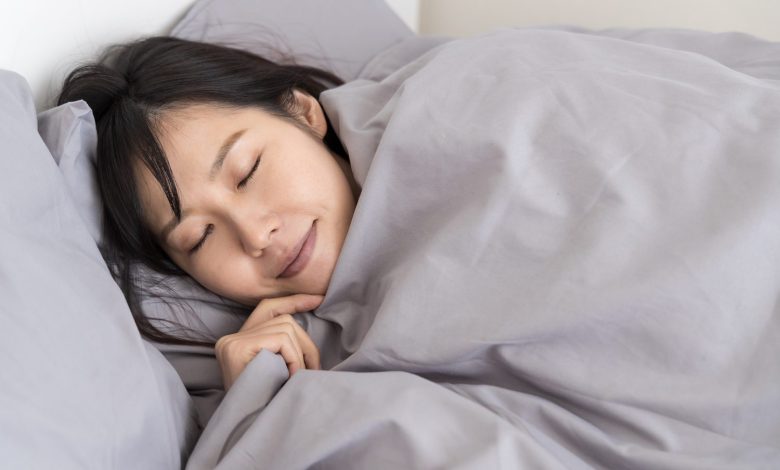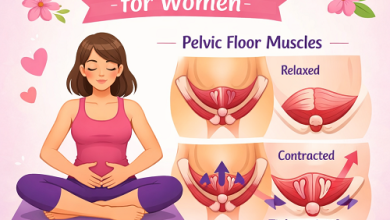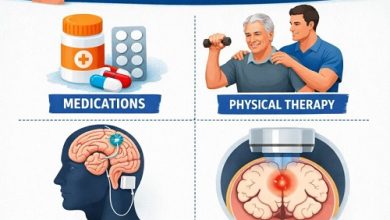20 Simple Ways to Fall Asleep Quickly Without Pills

Sleep is one of the most important pillars of health, yet many people struggle to fall asleep better at night. Instead of reaching for sleeping pills—which may have side effects or lead to dependency—you can adopt natural, science-backed methods to improve your sleep quality. If you’ve ever tossed and turned in bed, staring at the ceiling while your mind races, you’re not alone. According to the CDC, about one-third of adults don’t get enough sleep on a regular basis.
The good news? By making small adjustments to your daily habits, environment, and bedtime routine, you can train your mind and body to relax and drift into restful slumber—without relying on medications.
20 simple ways to fall asleep
20 simple ways to fall asleep quickly without pills, so you can wake up feeling refreshed, recharged, and ready to take on the day.
Stick to a Consistent Sleep Schedule
Your body has an internal clock, also known as the circadian rhythm, which regulates sleep and wake cycles. Going to bed and waking up at the same time every day—even on weekends—helps reinforce this rhythm. Over time, your body naturally learns when it’s time to wind down and when it’s time to wake up.
Tip: Try to aim for 7–9 hours of sleep nightly, and avoid staying up late or sleeping in excessively on weekends.
Create a Relaxing Bedtime Routine
Having a calming pre-sleep ritual signals your brain that it’s time to rest. Activities such as reading a physical book, listening to soft music, journaling, or practicing gentle yoga can help transition your body into sleep mode.
Avoid stimulating activities like scrolling through social media or working on your laptop, as these can delay sleep.
Optimize Your Bedroom for Sleep
Your bedroom environment plays a huge role in how fast you fall asleep. A cool, dark, and quiet room creates the perfect conditions for rest.
- Temperature: Keep your room around 60–67°F (15–19°C).
- Light: Use blackout curtains or a sleep mask.
- Noise: Try earplugs, a fan, or a white noise machine.
Your bed should be comfortable and supportive, so consider investing in a good mattress and breathable bedding.
Limit Screen Time Before Bed
The blue light from phones, tablets, and computers interferes with melatonin production—the hormone responsible for making you sleepy. Ideally, turn off screens at least one hour before bed.
If you must use your devices, install blue-light blocking apps or use “night mode” features.
Try the 4-7-8 Breathing Technique
Breathing exercises calm your nervous system and reduce stress. The 4-7-8 method is especially effective:
- Inhale through your nose for 4 seconds.
- Hold your breath for 7 seconds.
- Exhale slowly through your mouth for 8 seconds.
- Repeat 3–4 times.
This technique can help relax your body and make sleep come more quickly.
Avoid Caffeine Late in the Day
Caffeine is a stimulant that can stay in your system for 6–8 hours. Drinking coffee, tea, or energy drinks in the afternoon or evening may make it harder to fall asleep.
Tip: If you’re sensitive to caffeine, stick to morning consumption only, and opt for herbal teas at night.
Exercise Regularly (But Not Right Before Bed)
Exercise promotes deeper sleep and helps regulate your circadian rhythm. However, working out too close to bedtime can increase adrenaline and body temperature, making it harder to relax.
Best practice: Engage in moderate physical activity (walking, cycling, swimming, etc.) during the day or early evening.
Avoid Heavy Meals Before Bed
Eating large, greasy, or spicy meals late at night can cause indigestion or acid reflux, disrupting sleep. Instead, opt for a light snack if you’re hungry before bed—such as a banana, yogurt, or warm milk.
Practice Progressive Muscle Relaxation
This simple technique involves tensing and then slowly relaxing each muscle group, starting from your toes and working up to your head. It helps release built-up tension and signals your body to enter a restful state.
Write Down Your Worries
An overactive mind is a common reason for sleeplessness. If you find yourself worrying at night, keep a journal by your bed. Write down your thoughts, to-do lists, or concerns before lying down. This clears your mind and prevents rumination.
Try Aromatherapy
Essential oils like lavender, chamomile, and sandalwood are known for their calming effects. Diffusing them in your bedroom or applying a diluted drop to your pillow may help you relax faster.
Limit Alcohol Intake
While alcohol might make you feel drowsy, it disrupts your sleep cycle and reduces deep, restorative sleep. It also increases the likelihood of waking up in the middle of the night.
If you drink, keep it moderate and avoid alcohol within 3 hours of bedtime.
Take a Warm Bath or Shower
Raising your body temperature with a warm bath or shower before bed helps trigger a natural cooldown afterward. This drop in temperature signals your body that it’s time to sleep.
Adding Epsom salts or calming scents like lavender can further enhance relaxation.
Keep Your Bed for Sleep Only
Avoid working, eating, or watching TV in bed. Your brain should associate your bed strictly with sleep (and intimacy). This strengthens the mental link between lying down and falling asleep.
Try Gentle Yoga or Stretching
Gentle stretches or yoga poses like child’s pose, seated forward bend, or legs up the wall help relax tight muscles and calm the nervous system, preparing your body for sleep.
Use the “Paradoxical Intention” Trick
Sometimes trying too hard to sleep makes you more anxious. Instead, try the opposite: lie in bed and tell yourself to stay awake. This counterintuitive method reduces sleep anxiety and often helps you drift off naturally.
Get Natural Sunlight During the Day
Exposure to sunlight helps regulate your circadian rhythm and boosts melatonin production at night. Aim for 20–30 minutes of natural sunlight each morning or midday.
If sunlight is limited, consider a light therapy lamp.
Adjust Your Napping Habits
While short naps (20–30 minutes) can be refreshing, long or late-afternoon naps may interfere with nighttime sleep. If you struggle with falling asleep quickly, limit naps or take them earlier in the day.
Hydrate Smartly
Going to bed thirsty can make you uncomfortable, but drinking too much water close to bedtime may cause multiple bathroom trips. Stay hydrated throughout the day, but reduce fluid intake about 1–2 hours before sleep.
Practice Mindfulness or Meditation
Mindfulness meditation trains your brain to focus on the present moment, reducing racing thoughts and anxiety that keep you awake. Even 5–10 minutes of guided meditation before bed can improve relaxation and sleep quality.
There are plenty of apps, podcasts, and YouTube videos with sleep-focused meditations.
Final Thoughts
Falling asleep quickly without pills is absolutely possible when you adopt the right lifestyle habits and create a sleep-friendly environment. By following these 20 natural techniques, you can train your mind and body to relax, improve your sleep quality, and wake up refreshed.
Remember: improving sleep often takes consistency and patience. You might not notice drastic changes overnight, but with regular practice, these habits will help you fall asleep faster and stay asleep longer.
FAQs About Falling Asleep Naturally
Q1: How long should it normally take to fall asleep?
A: For most healthy adults, it takes about 10–20 minutes to fall asleep. If it consistently takes much longer, it may signal insomnia or poor sleep habits.
Q2: Is it bad to use sleeping pills regularly?
A: Long-term use of sleeping pills can cause dependency, tolerance, and side effects. Natural methods are safer for long-term sleep health.
Q3: Can drinking warm milk really help you sleep?
A: Yes, warm milk contains tryptophan and has a soothing psychological effect, making it a classic natural sleep aid.
Q4: What’s the fastest way to fall asleep when stressed?
A: Deep breathing techniques, progressive muscle relaxation, and mindfulness meditation are some of the fastest ways to calm stress and induce sleep.
Q5: When should I see a doctor about sleep problems?
A: If you struggle with falling or staying asleep for more than 3 nights per week over several weeks, or if poor sleep affects your daily life, consult a healthcare professional.




